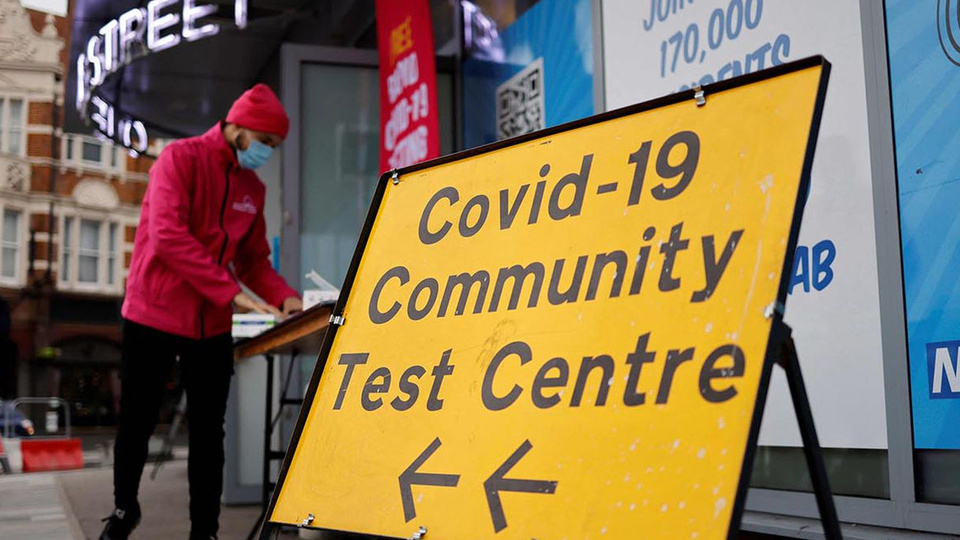
US health officials are concerned about the progress Ómicron’s BA.5 sub-variant became the dominant virus in that country within weeks. It can be a process that leads to The second major wave of the epidemic In that country, the British newspaper pointed out Guardian.
This too will come at some point Most of the US has relaxed almost all restrictions A recently published report elaborates that the general public and life has largely returned to normal with Covid-19.
“It is clear that Covid-19 is not over yet. We are seeing a dramatic increase in the number of cases and hospitalizations in many locations across the United States.” Jason Salemi, an associate professor of epidemiology at the University of South Florida College of Public Health, was quoted in the report.
“We’re going in the wrong direction as BA.5 starts to affect the US,” Salemi warned: “We’ve seen it coming for a while. We’ve seen it spread steadily.”
More than one in three Americans live in a county with a medium risk of coronavirus And according to the US Centers for Disease Control and Prevention (CDC), one in five are at high risk. According to Salemi, this is the highest rate of people at risk in the country since February.
WHO warning
The World Health Organization (WHO) decided this Tuesday to maintain an international emergency due to the Covid-19 pandemic.It has been in place for almost two-and-a-half years, and warned of the dangers of the current laxity in monitoring the epidemic seen in many countries.
“There is a big disconnect between the scientific community, political leaders and public opinion about Covid,” lamented WHO director-general Tedros Adhanom Ghebreyesus at a press conference, after confirming the body was maintaining the highest level of pandemic emergency.
Tedros chose it after receiving recommendations from the Emergency Committee on Covid, which meets every three months to analyze the situation of the epidemic and did so for the twelfth time on April 8.
After three-and-a-half hours of deliberations, experts from the panel, led by French epidemiologist Didier Housin since January 2020, concluded that Covid “continues to be an extraordinary event that continues to adversely affect global health”.
The group also warned that the decline in testing in many countries is affecting the ability of experts to analyze the evolution of the coronavirus at a time when mild cases are increasing in those with high vaccination rates.
In this sense, they lamented the “reduced coverage and quality of surveillance”, which has translated, among other things, into a lower export of genetic sequencing of Covid cases in all regions.
“The virus is spreading freely and countries are not effectively managing the risk according to their capacities,” said the WHO director-general, warning of a “prolonged Covid” impact in many regions or maintaining the symptoms of patients who have already recovered. .
Even with infection controlIn the last two weeks, there has been a 30 percent increase in Covid cases worldwideMainly due to BA.4 and BA.5 sub-lines of omicron variation, the Emergency Committee warned.
“New waves of the virus show once again that Covid is far from over,” Tedros summed up, while the panel’s experts assured that Covid dynamics are “unpredictable”.
Recommendations
In light of the situation, the committee recommended measures to restore previous surveillance levels, including better integration with national data of the results of self-examination tests currently practiced by many citizens, replacing PCR tests or antigen tests. .
Experts maintained the recommendation to vaccinate at least 70 percent of the national population to reduce serious cases and deaths, and advised countries that have yet to reach 20 percent rates to help them develop strategies to expand vaccination in their regions.
At the same time, they recommended adopting measures to reduce the spread of the virus at mass events and other personal ones, such as the use of masks, physical distancing or frequent hand hygiene, which have been used since the beginning of the health crisis. A year and a half ago.

“Introvert. Thinker. Problem solver. Evil beer specialist. Prone to fits of apathy. Social media expert. Award-winning food fanatic.”





More Stories
Two influencers drown after refusing to wear life jackets: “ruining selfies”
Uruguay 2024 election results: who won and when is the second round | Waiting to know whether there will be a runoff or not
Uruguay: Lacalle Pou leaves with his figure on the slopes | The Marcet and Asteziano scandals hit the right-wing ruler